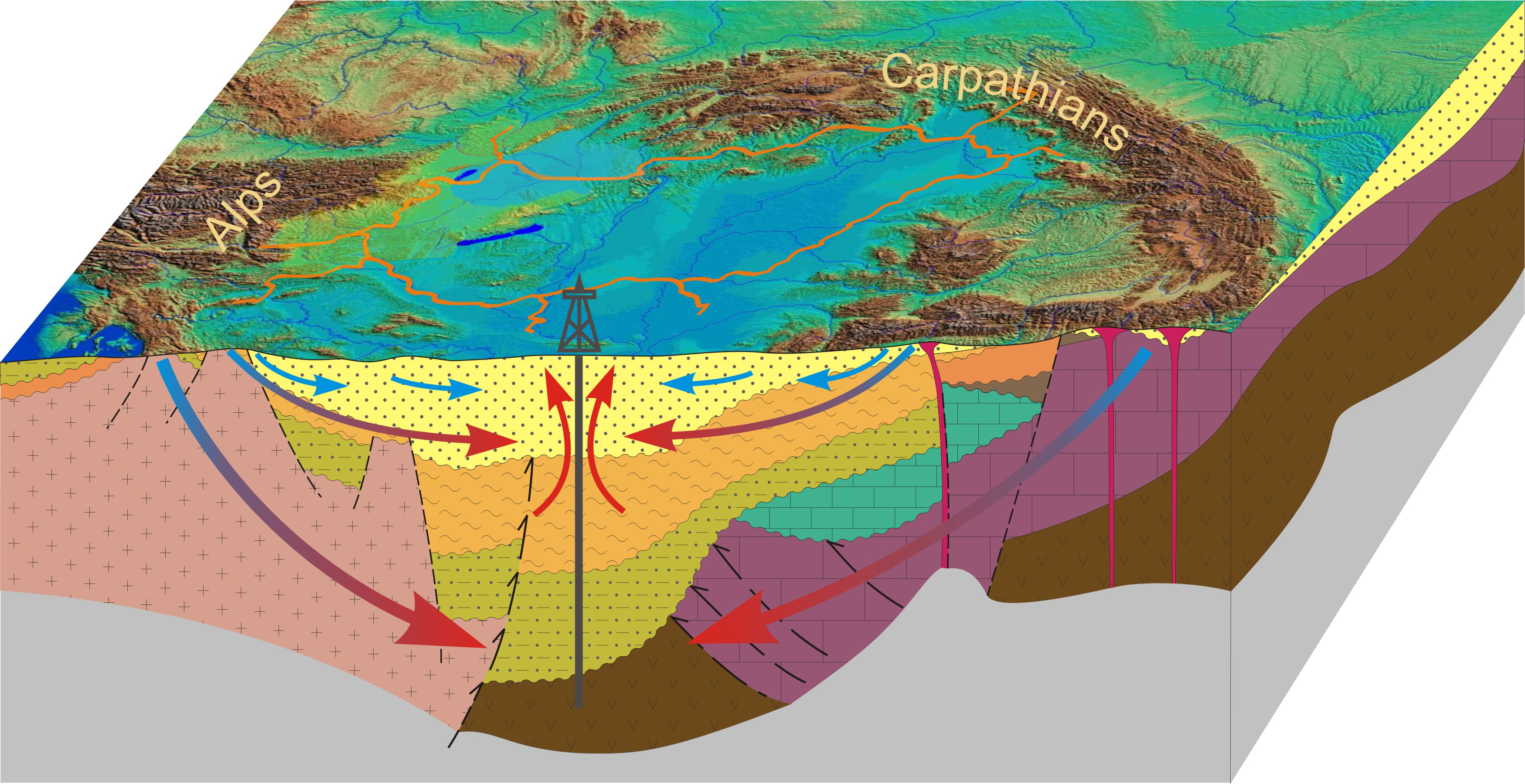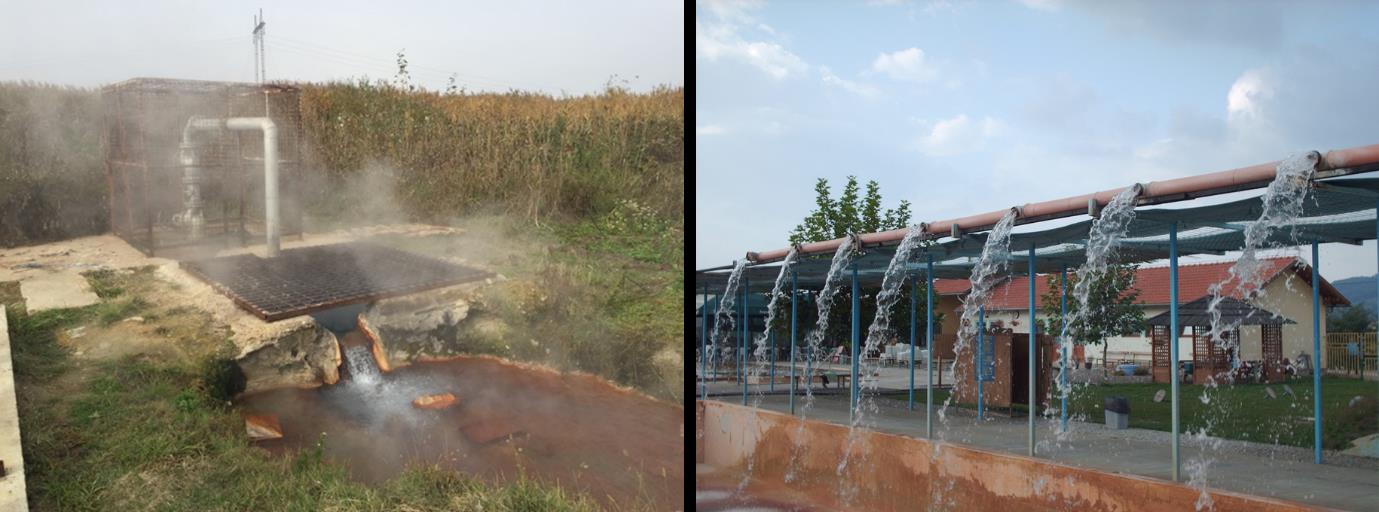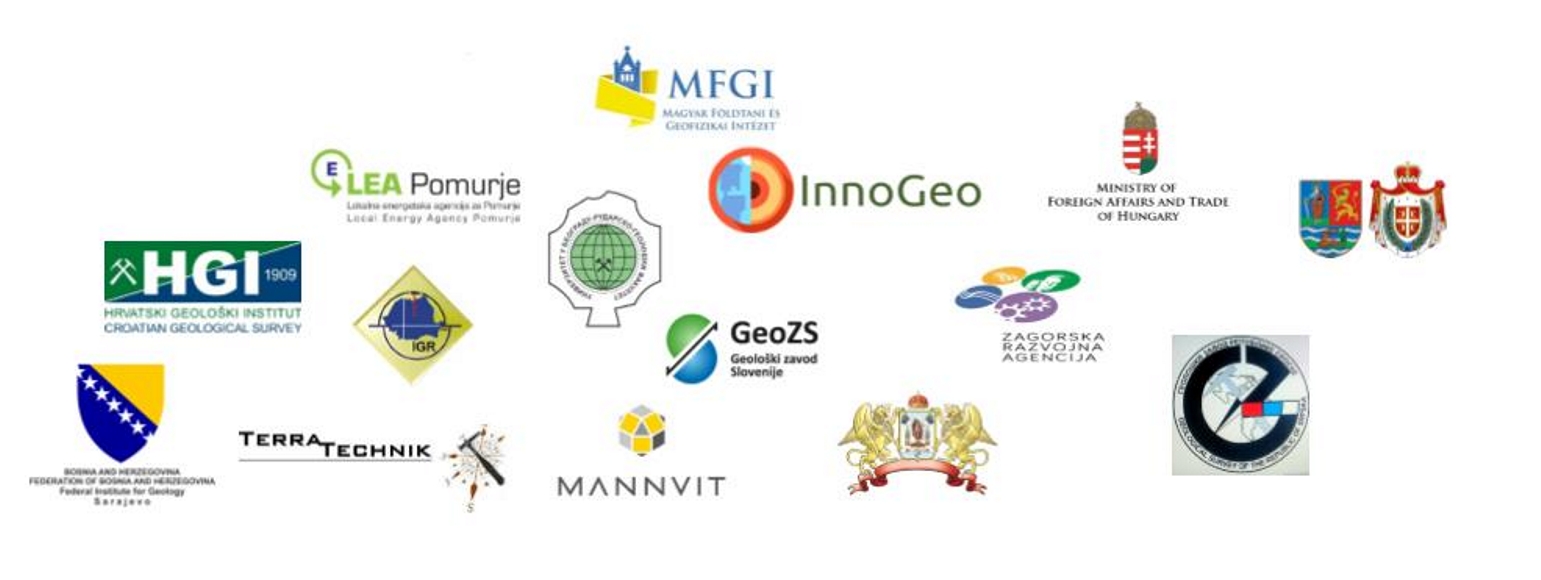|
|
| |
| |
 |
Darlinge - introduction
|
| |
The aim of DARLINGe project (DANUBE REGION LEADING GEOTHERMAL ENERGY), carried out by 15 partners from 6 countries in Central, South-East and Eastern Europe is to contribute to energy security and energy efficiency by enhancing the efficient use of deep untapped geothermal resources in the heating sector, and by introducing the “cascade use” of geothermal energy. In “cascaded systems” various users are sequentially linked according to their decreasing heat demands, i.e. district heating systems, industrial applications first, followed by individual space heating, and having low-temperature users at the end, such as fish-farming, or snow melting, or even balneology.
Project area and the three cross-border pilot test areas
The potential geothermal reservoirs - targets of the project studies - are linked to large-scale geological structures, often cut-cross by country borders. Therefore a common approach and joint working methodology by the partner countries is needed to elaborate an integrated Danube Region Geothermal Strategy and Actions Plans for sustainable uses, which are among the main outputs of the DARLINGe project.

Schematic diagram of the geothermal systems in the Pannonian basin, DARLINGe project region
|
| |
 |
Status of the project progress and deliverables achieved
|
| |
During the first semester, the project was successfully launched and the partners have been working hard on the preparation of the professional work and the basic documents which are essential for the project. The partners organized several meetings and workshops in order to discuss the overall and the forthcoming tasks, responsibilities and milestones:
- 1st project meeting in Budapest (25-26 January 2017), where the specific aspects of each Work Package have been discussed. The event was followed by the workshop “Capacity Building for project partners”, which aimed to introduce the state-of-art in exploration of geothermal resources, specific legislative aspects and modelling of geothermal energy resources.
- progress meetings in Zagreb (20-21 February) and Szeged (26-27 April) where the project partners worked on the definitions on geological, hydrogeological and geothermal characteristics to be jointly used in the project and their harmonization at country borders.
- Project Launch Event for the wider public on 10 April 2017 in Budapest, attended by almost 100 stakeholders from 6 countries
- 2nd project meeting in Ljubljana (7-8 June, 2017) where the project partners evaluated the achievements of the first semester and prepared the work of the next period

The following results were achieved so far:
- Communication Plan for the whole project period;
- DARLINGe web page, where all useful information can be found in connection with the project;
- Creation of social media accounts (Facebook, LinkedIn) for the greater dissemination of project related information;
- Elaboration of a stakeholders database, which contains contact details of 956 stakeholders representing the entire geothermal value chain (ministries, authorities, project developers and operators, present users, SME-s, academia, etc.) from 6 countries;

- Establishment of the Transnational Stakeholder Forum which consists of 3 representatives of the 6 countries; their role will be to assist the consortium’s work during the whole project.
- A very important work has started in WP5 which implied revision of all available geological, hydrogeological and geothermal data in the partner countries for outline and characterization of regional geothermal reservoirs. The evaluation report is scheduled to be delivered in the second half of 2017.
- The first version of the conceptual data model for the Danube Region Geothermal Information Platform (DRGIP) has been elaborated and discussed among consortium members. The DRGIP portal will serve in a future as an interactive site to show all results (maps, databases, evaluation reports) in a user-friendly form for all stakeholders

Geological profile between Comlosu Mare and Salonta (Romania), showing the geothermal aquifer in the basin fill (so called “Pannonian”) sediments. DARLINGe is looking at the spatial distribution of such regional thermal water aquifers shared by the partner countries and aims to elaborate joint methods for the assessment of their sustainable use.
|
| |
 |
Future activities
|
| |
A highly important task in the next period will be to proceed with the activities of WP5 (State-of-art analyses), such as:
- overview of current utilization schemes (database of present uses);
- case studies of good practices and bottlenecks;
- heat sector analyses;
- overview of regulatory framework, licensing procedures and funding opportunities.

Some current uses of geothermal resources in DARLINGe project countries (Serbia – left; Bosnia-Herzegovina – right)
The project partners also will focus on activities in WP4 (Transnational data management), concentrating especially on “Data models”, which will serve as a basis for the implementation of the “Danube Region Informational Geothermal Platform (DRIGP)”.
|
| |
 |
Date to remember: 18-19 October 2017, Budapest
|
| |
DARLINGe project will be present at the 6th Annual Forum of the EU Strategy for the Danube Region, which will take place in Budapest, on 18-19th October. The event is co-organized by the Danube Transnational Programme (DTP), and the main objective of the 2nd day is to strengthen the networking capacity of the projects through the creation of a networking platform where possible synergies between existing projects can be identified.
To take advantage of this prestigious international event, the 1st Transnational Stakeholder Forum meeting will be organized back-to-back with the Annual Forum, in the morning of 18th October. All the project partners, Associated Strategic Partners and the members of the Transnational Stakeholder Forum are invited to this event.
|
| |
 |
The Consortium
|
| |

|
|
|
|
| |
|
If you have received this newsletter, you have been included on one or more of the Danube Transnational Programme/projects postal mailing lists. We are committed to respect and protect the privacy of personal data collected. We regard your personal data as confidential information and will never communicate it to third parties. Your personal data are used mainly for the express purpose of receiving the newsletter. Your mailing details may also be used by the DTP and its projects for information and dissemination purposes strictly related to the programme and its projects. If you prefer not to receive more of this newsletter and your data not to be used for dissemination purposes, you can unsubscribe by sending a reply email.
|
|
|
|
|
|
